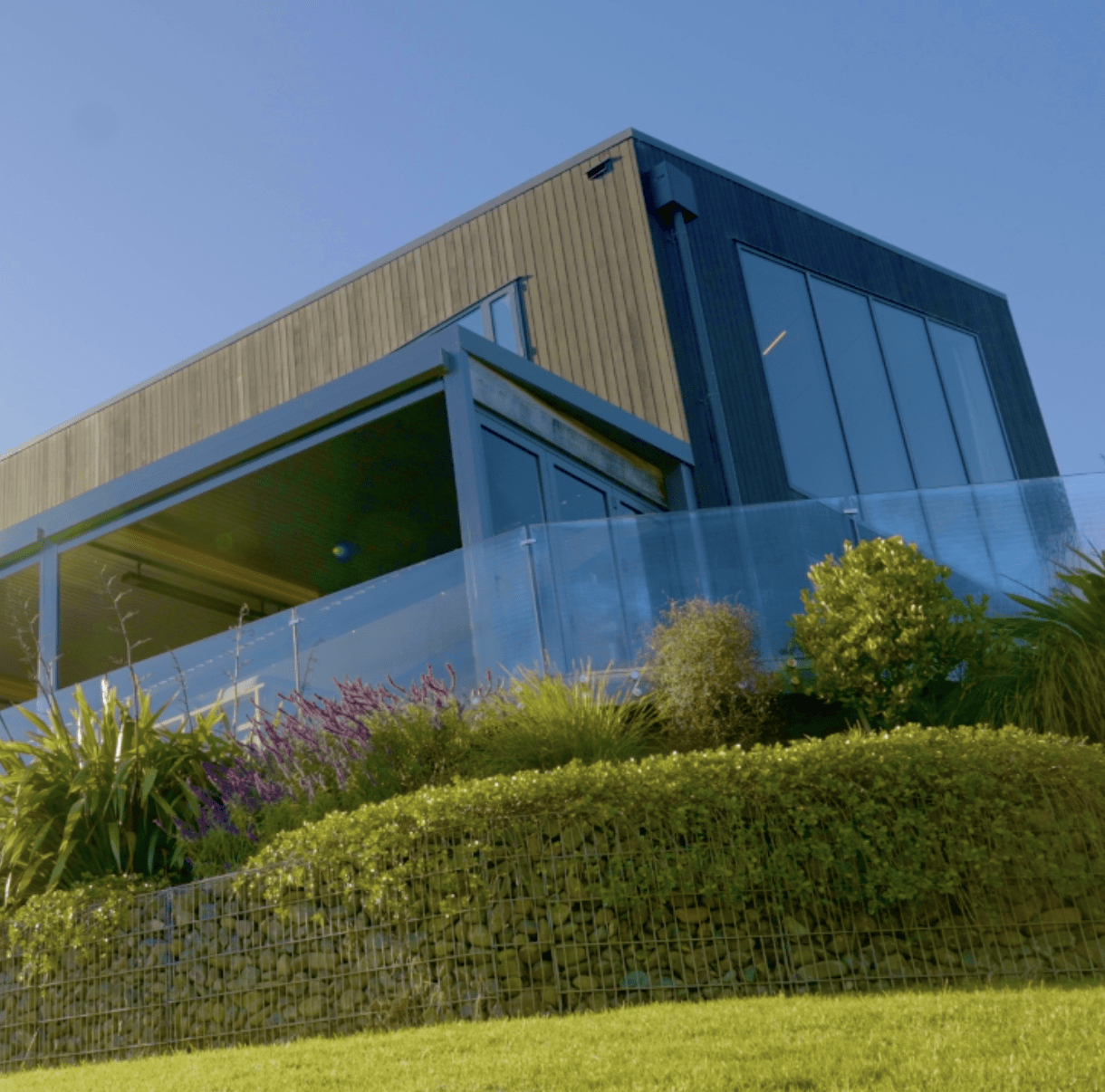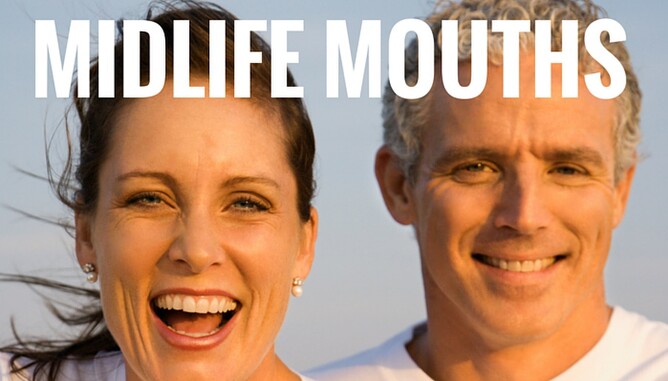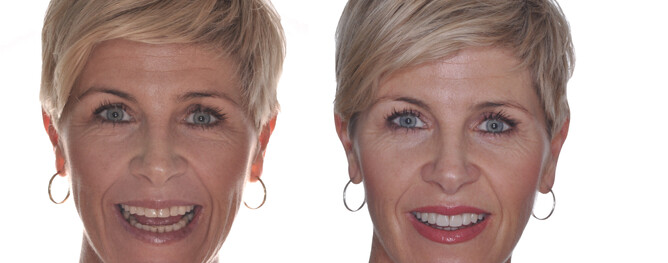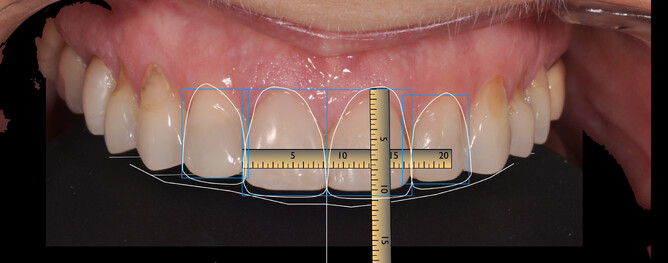Innovation In Dentistry - Managing The Midlife Mouth
I developed an interest in dental erosion and tooth wear in 2005, and found myself consulting with experts globally after observing exponential rates amongst my patients, particularly women in midlife.
This led to the start of a practice dedicated to Tooth Wear and Rejuvenation, and a focus on the issues seen in the following case study.
I coined the term "The Midlife Mouth" based on the prevalence of patients in my practice presenting with similar symptoms. Today I add Digital Smile Design to my diagnostic technique for managing a "Midlife Mouth" and the outcome provides a stunning dental reinvention.
Case Study: A Midlife Mouth
Few people are as fastidious with their health as our attractive healthy patient.
My diagnosis was dental erosion, caused by an acid attack that dissolves tooth enamel. An Erosion Evaluation was completed - a short questionnaire to identify the acid source. The culprit - lemon juice in water, used as a health tonic. The potency of citric acid in lemons is significant and damage can occur quite rapidly. Coupled with a busy life creating a slightly dry mouth, with less protective saliva, her teeth were in a no win situation.
Despite having an immaculate mouth and hydrating well, the potency of citric acid found in lemon juice, combined with clenching and reduced saliva was enough to flatten her teeth and create worn yellow hollows on the tops of teeth and at the gumline. After attending repeatedly for replacement fillings she decided to proceed to a bite and smile rebuild in porcelain.
Digital analysis:
Digital Smile Design, or DSD, was developed by Brazilian dentist and ceramist Dr Christian Coachman. It involves careful analysis of the face, and customization of teeth within the face. I worked closely with Christian, inviting him to my office to work together on this case. In collaboration with Bradley Grobler, Master Ceramist, our team produced a stunning smile that truly reflected the patient's personality.In addition to designing complimentary tooth shapes with veneers, we had to open the bite and raise the height of the teeth. Re-engineering a bite is precision treatment that takes careful planning.
We start by deprogramming old biting habits. Muscles have memories called engrams. When bites have altered through wear, and unhealthy chewing patterns develop, we need to re-programme muscles and joints to find a stable starting point to rebuild a bite.
Enhancing the natural beauty of each patient, I use a blend of engineering, biology and art to manage both a bite reconstruction and a smile makeover. I apply morpho-psychology and visagism - a novel concept that applies the principles of visual art to the composition of a customised smile.
The aim is to create a smile design that expresses the patient's personality and lifestyle, ensuring harmony between the restorations and the patient's physical appearance, values, and attitudes. The result is stunning, customised porcelain veneers - ready for try in and final approval. Cloud based team communication allowed the dental team to collaborate, despite working globally.
We filmed this case study as a showcase of customised dentistry in treating tooth wear, using Digital Smile Design in planning.
Tooth wear and erosion
Many dentists have attributed worn and broken down teeth to tooth grinding, or bruxism. While a percentage of the population grind their teeth in their sleep, studies have shown that less than 10% of the population are true tooth grinders. The habit is related to a sleep disorder that includes restless movements and micro-arousals.A growing and significant factor in tooth wear is erosion – dissolving of tooth enamel by acids, either from within the body (gastric acid) or outside sources such as diet.
The problem is worse when there is less protective saliva. Saliva helps to repair softened teeth and reduce the cycle of damage. Saliva reduction can be caused by caffeine, medication, stress and age.
I have noticed significant wear patterns in my midlife patients, particularly women. Their teeth were aging at an astounding rate, creating collapsed faces, lines, sensitivity and a yellow smile.
Their lifestyles were healthy but included hidden sources of acid, such as lemon juice in water, herbal teas and wine and their caffeine intake was high. I realised that their lifestyles were constantly on the go. Dr Libby Weaver has eloquently described this as Rushing Woman's Syndrome.
My patients were over-caffeinated, drinking things that were acidic, many were taking medication that had dry mouth as a side effect and most were stressed, just because they were juggling so many things – careers, kids, mortgages, university fees, and aging parents.
I spend a great deal of my working life helping men and women reconstruct worn teeth. It's hard to rebuild a bite on just one tooth – it's like walking on one stiletto and one flat shoe. This means the commitment to treatment usually involves an entire jaw of teeth. The cost, when done in hard-wearing ceramic can be prohibitive for many people. We've developed techniques to place transitional lower cost composite resin, which can be converted over several years to ceramic, tooth by tooth, part of the innovation required to manage the Midlife Mouth.
If you would like to know more about Midlife Mouths and the treatment options available contact Dr Andrea Shepperson at Lumino City Dental at Quay Park. Dr Shepperson offers lectures and mini-residencies in managing erosion for both dentists and hygienists. She can be contacted for speaking engagements or appointments at andrea.shepperson@lumino.co.nz and via this website.




